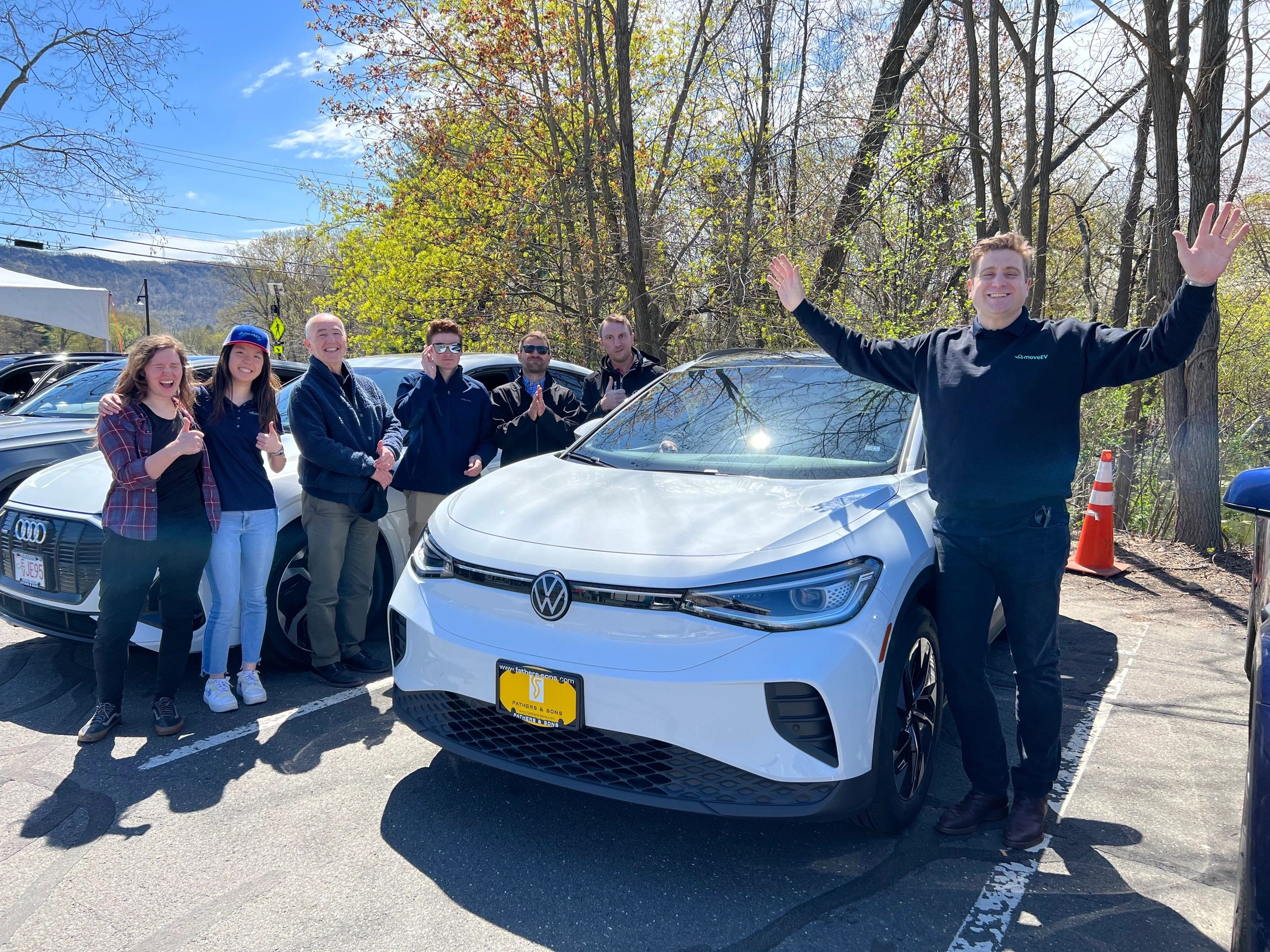
Green.org sat own with David Lewis, Founder and CEO of Move EV, to learn keys to a sustainable, successful life.
David, thank you for being here! Tell us a little bit about your background.
I grew up in Western Massachusetts helping out at my dad’s restaurant. So from a young age I was taught the value of hard work and the importance of putting the customer first. After college I worked on Wall Street and then went to Business School before joining the Boston B2B software company Motus, where I became an expert in fleet and vehicle reimbursement. During the COVID-19 pandemic when I was home with my two young daughters, I became increasingly concerned about climate change. I founded MoveEV to help scale electric vehicle adoption in America. Our flagship product ReimburseEV™ is the leading fleet expense management software solution that help’s organizations efficiently manage employees charging at-home. Charging at-home is the most efficient cost effective way to charge a fleet vehicle. This takes pressure off of companies to install on-site infrastructure and encourages off-peak home charging behavior that saves money and reduces the impact of EV fleets on the grid.
What would you do with $1 billion dollars?
Money & education are the keys to success here. If I had $1 billion to spend on the EV transition I would put it toward EV education and access for middle America. I would allocate a portion of the funds to create and provide a free EV education curriculum to schools across the country. This curriculum would help students, teachers, faculty and the broader community understand the enormous environmental and economic benefits of EVs (and would more than pay for itself!). Continuing to focus on schools and teachers – the hub of our communities. In addition to education, money talks. I’d earmark a significant portion of the funds to assist teachers in purchasing their first electric cars. My hope would be that an additional $2,000.00 per vehicle would catalyze adoption in and around the school. This approach would help to make EVs “normal,” reduce emissions in and around our schools, and save educators millions on gas.
Why do you think sustainability is such an important topic today?
Time is running out to combat the most devastating impacts of climate change and the choices we make now will determine the future for our children. The scientific consensus is clear: our planet is experiencing unprecedented warming directly related to the burning of fossil fuels. Transportation makes up 30% of America’s carbon footprint. We already have the technology we need to cut this number in half with electric vehicles. Unlike traditional gasoline-powered cars, EVs produce zero tailpipe emissions, and as we add more green energy to the grid, they get even cleaner. What is holding us back now is education and access. More EVs are coming into the market every day, and the prices are coming down significantly. The adoption of EVs is a tangible and immediate way to combat climate change and all companies and municipalities should be leading by example and encouraging employees to make the switch as well.
What do you envision your industry looking like in ten years?
Overall, I think the transportation industry in ten years will be characterized by a significant shift towards electric mobility, reduced carbon emissions, improved air quality, and a focus on accessible and sustainable transportation options. Specifically:
1. Increased adoption of electric vehicles (EVs). With ongoing advancements in EV technology, growing environmental awareness, and billions of government funding, more people and businesses will embrace electric vehicles. Current projects vary but I would expect at least 30% of the vehicles on the road ten years from now to be EVs or PHEVs.
2. Carbon emission reductions. With a focus on cutting carbon emissions, MoveEV’s efforts and similar initiatives should contribute to a substantial decrease in greenhouse gas emissions from the business transportation sector. This reduction aligns with broader global efforts to combat climate change. This will include all modes, vehicle, air, etc.
3. Improved air quality: As more vehicles become electric, the transportation industry could contribute to improved air quality, especially in urban areas. Electric vehicles produce zero tailpipe emissions, reducing harmful pollutants and making cities healthier places to live.
4. Innovation in mobility solutions: The EV and charging infrastructure technology are evolving rapidly and I am sure we will see many innovative mobility solutions in the next ten years. These could include advancements in public transportation, shared mobility, off-grid charging, super fast charging and sustainable transportation infrastructure.
5. Access to electric vehicles will increase exponentially: More affordable EVs, used EVs and ride-share programs will become mainstream.
6. Corporations will be held responsible for their employees’ commuting emissions, which are currently classified as Scope 3 emission. This will act as another catalyst for mass EV adoption.